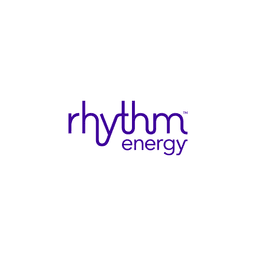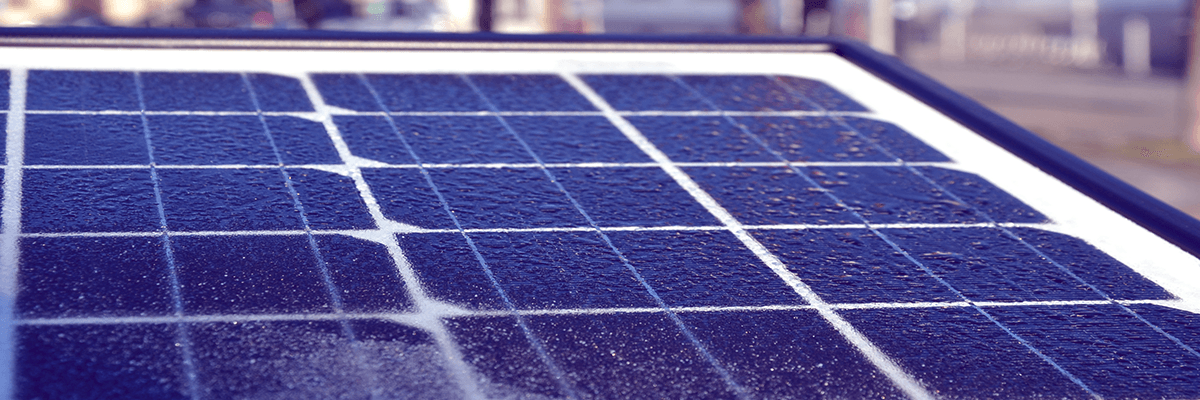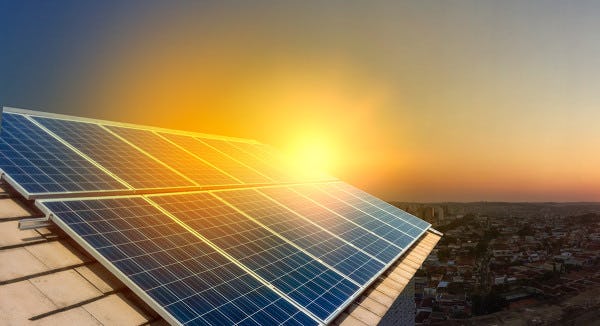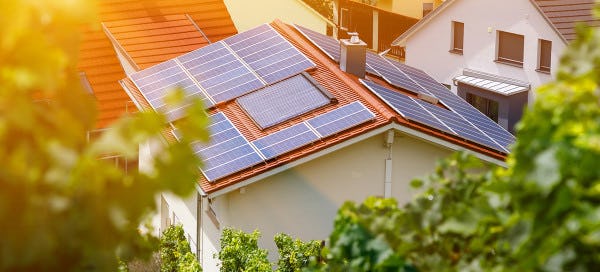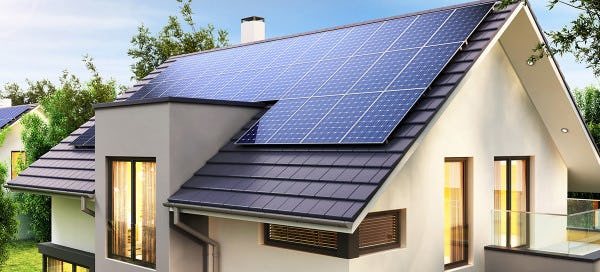There's a common opinion that solar panels don't work well in winter, which is not true. In our article, we will discover everything you need to know about the solar winter paradox. Solar energy remains effective, even in colder months because solar panels produce energy thanks to the sunlight, not the warm weather. Keep reading to find out more.
Do solar panels work in winter?
Despite the common belief that solar panels are ineffective during winter, it's actually a myth. The functionality of solar panels is independent of warm temperatures but rather of sunlight. Solar panels work by using sunlight and converting it into usable energy. The sun produces energy that reaches the Earth known as solar radiation. Within solar panels, specific components or solar cells absorb this solar radiation. Inside these cells, the photovoltaic (PV) effect occurs, making electricity.
Put simply, solar panels operate on the photovoltaic effect, which relies on sunlight, not necessarily warmth. That means that the efficiency of solar panels has very little to do with heating – it depends on the sunlight exposure, providing you with clear energy during the whole year.
At what temperature do solar panels stop working?
Most modern solar panels are designed to work well in temperatures ranging from really cold (-40°F) to extremely hot (185°F). However, the temperature when they stop working is not likely to happen.
Are solar panels effective in winter?
Texas stands out as one of the sunniest states in the U.S., with Dallas having an average of 234 sunny days annually. A great amount of sunshine hits Texas enabling residents favorable conditions for harnessing solar energy. However, what happens during those short yet sometimes sharp winters in Texas? Does solar work in winter in Texas?
In the Lone Star State of Texas, where winters typically boast milder temperatures compared to their northern counterparts, solar panels can be particularly effective year-round, including winter days.
What is a solar winter?
Of course, the energy output decreases during solar winter, which starts in November and ends in February. However, solar panels will continue to work even during the winter months, too.
What is the best month for solar power?
While the sunny months (starting from April) enable the solar panels’ best efficiency, the truth is that the hot sunny months are not the best for solar panels. Solar panels work the best when temperature is between 39°F to 55°F. Their efficiency is also higher when the temperature is colder but the weather is sunny.
What are the worst months for solar?
Solar energy production is usually lowest during winter because the days are shorter, and the sun is lower in the sky. In the Northern Hemisphere, this makes December, January, and February the least productive months for Texas solar power.
Texan Climate and Solar Energy
In Texas, climate brings unique challenges and opportunities for solar energy, especially during the winter times. It’s the second-largest state in the U.S., with several different areas, each of them having versatile landscapes – from pine forests and swamps to deserts. This means that winter in Texas is not the same everywhere – it's different depending on which part you're in.
Some areas in Texas have more sunlight during the day than others. Also, winters can be mild in some places but a bit rough in others. Despite all that, Texas winter is usually not too cold and there’s a lot of sun, which helps make solar energy.
However, to make solar panels work best, it's important to know the different winter weather in Texas. Adjusting to the specific conditions in different areas can optimize the performance of solar panels and maximize the energy they produce.
Snow and Solar Panels in Texas
Another question that we need to answer is what happens with solar panels during the snowfall. Will they still work? To answer shortly, yes. Solar panels are designed to endure cold temperatures and harsh weather conditions, including snowfall.
Snow is not very common in Texas, but it can happen from time to time and you should be prepared for it. If you face a little snow, your solar panels will be a bit less efficient than usually. However, even with a thin layer of snow, they will continue to work.
With a lot of snow, on the other hand, solar panels might not make power for a while. It doesn’t happen often, but if a lot of snow covers your solar panels, the sun of the wind will clear it. This way your solar panels will actually benefit from snow because when the snow melts, they will be clear. Melting snow will clean your solar panels of dirt and dust, improving their efficiency.
Solar Panel Maintenance Tips for Texans
To take care of your solar panels in winter, consider these steps. First, consult local solar professionals to ensure equipment protection, warranty preservation, and safety. Please, keep in mind that your warranty will not work if you damage the solar panels while you try to clean them. If heavy snow falls on your solar panels, call professionals to remove it.
Secondly, you should position your solar panels at the right angle so they can get enough sunlight during the winter months. This way, the energy output will be maximized for optimal performance during the colder months.
Although snow is less likely to happen in Texas, consider removing it carefully if it falls. While the sun will probably melt the light snow, heavy snow can decrease solar panel energy production. As mentioned, call professional cleaners to remove snow from your solar panels to prevent damage and avoid warranty issues.
Solar panels have batteries that you should properly protect during winter months. You can put the battery in a safe, warm place in your garage or insulate it.
Is solar a good idea in Texas?
The advantages of solar energy in Texas are numerous, including a lot of sunny days, cost savings, and various incentives and programs to support solar energy adoption. For example, the government's Residential Clean Energy Credit (formerly known as the Investment Tax Credit) gives a 30% deduction on your whole solar system cost from your federal taxes. This offer lasts until 2032, so it's a good time to go solar.
Texas residents can also apply for other benefits like Oncor Residental Solar Program, Austin Energy programs, CPS energy programs, and net metering to sell extra solar energy. So, choose a renewable energy provider in Texas and benefit from green energy all year round.
Another thing you should know is that Texas has solar payback programs. If you are wondering what is a solar buyback, the answer is simple. A solar buyback program enables you to sell the excess power your solar panels generate. Rhythm Energy offers the best solar energy buyback in Texas, featuring benefits and perks.
In conclusion
In Texas, where winters are generally gentler, solar energy stands out as a suitable your-round choice. Contrary to the belief that solar panels don’t work in winter, their efficiency is good during winter months. The efficiency of solar panels depends on sunlight, not warm temperatures, meaning that in Texas you may rest assured your solar panels will produce enough energy during the whole year. This sunny state also offers government incentives and programs, so you just need to choose the best electricity plans in Texas.
Sign up with Rhythm Energy today!
